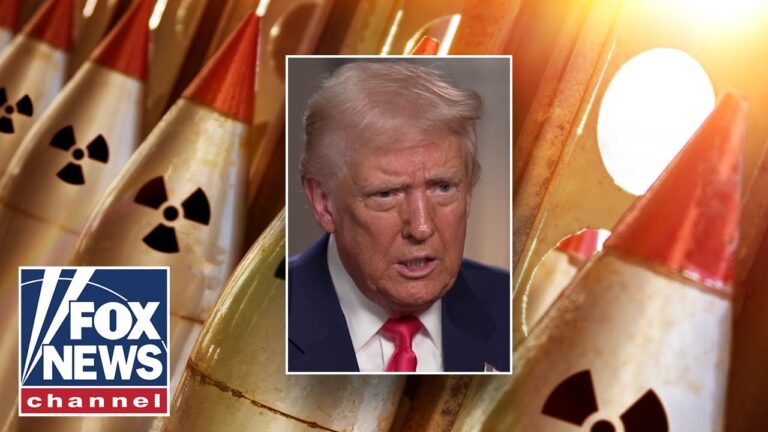Video at the bottom!
In the recent interview with Maria, the discussion pivots around the dynamics of international relations, particularly focusing on Ukraine and Russia. Maria initiates the dialogue by referencing a tense moment in the Oval Office involving Ukrainian President Zelenskyy, describing it as a “smackdown.” Trump responds emphatically, criticizing Zelenskyy for his perceived lack of gratitude despite the significant financial support Ukraine received from the U.S. and Europe.
Trump emphasizes that, in his view, Ukraine has had substantial aid compared to Europe’s contributions. He asserts that under his administration, the conflict in Ukraine would not have escalated as it did under President Biden, citing a series of geopolitical issues, including rising inflation and energy costs. Maria raises concerns about potential tariffs increasing input costs, to which Trump counters by discussing recent decreases in interest rates and energy prices.
As the conversation shifts to potential deals with Ukraine, Trump expresses confidence in the country’s natural resources and criticizes Biden’s financial strategy in comparison to Europe’s. He highlights a disparity in Europe’s energy payments to Russia versus the military aid to Ukraine, arguing that Biden’s handling of the situation has been misguided.
Maria shares insights from Polish President Duda, reflecting skepticism about Europe’s ability to support Ukraine without U.S. involvement. Trump acknowledges this, stating that Ukraine may not survive regardless of U.S. assistance and lamenting the broader consequences of weakened U.S. borders and foreign policy failures during Biden’s term.
The discussion continues to touch on U.S. policy toward Hamas and Russia, with Trump asserting that he has maintained a tough stance against both. He contrasts his approach with Biden’s, defending his record on Russian sanctions and energy policies, while noting the importance of diplomacy in handling Iran’s nuclear ambitions. He shares details about a letter he recently wrote to Iran’s leadership, urging them to negotiate rather than face military action.
Towards the end, the conversation shifts to defense spending and nuclear weapons, where Trump expresses reservations about the vast expenditures associated with nuclear arsenals, framing the global threat of nuclear weapons as a more pressing concern than climate change. He critiques the prevailing focus on climate issues, arguing that the existential threat lies in the potential use of nuclear weapons, emphasizing the immediacy of that danger compared to speculative climate predictions. The interview concludes with a reflection on the gravity of maintaining global security amidst complex geopolitical challenges.


